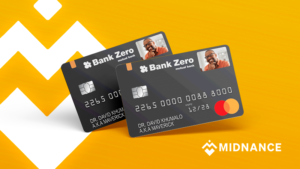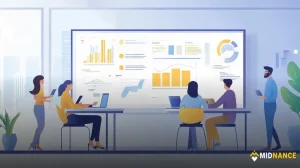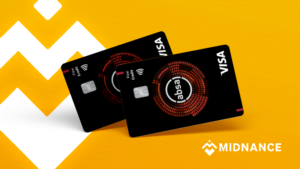For individuals with a poor credit history or no credit at all, obtaining a traditional loan can be a significant challenge. Credit checks are a standard practice for most financial institutions, as they assess a borrower’s creditworthiness.
However, for those who don’t meet the criteria, loans without a credit check present an alternative option. These loans cater to individuals who might not qualify for conventional financing but still require funds for urgent needs.
1. What Are Loans Without Credit Check?
Loans without credit checks are financial products that do not require lenders to perform a hard inquiry into the borrower’s credit history. Instead of assessing the borrower’s credit score, lenders use other criteria to evaluate the borrower’s ability to repay the loan. These criteria may include employment status, income, and bank account activity.
Types of Loans Without Credit Check: There are several types of loans that fall under this category, each with its own requirements and terms. The most common types include:
Payday Loans: Payday loans are short-term, high-interest loans that are typically due on the borrower’s next payday. They are designed to cover emergency expenses and are often based on the borrower’s proof of income.
Title Loans: A title loan allows borrowers to use their vehicle’s title as collateral in exchange for a loan. If the borrower fails to repay the loan, the lender can repossess the vehicle.
No Credit Check Personal Loans: These loans offer flexibility in terms of loan amounts and repayment schedules. Lenders evaluate other factors like income and employment stability instead of focusing solely on the borrower’s credit history.
Cash Advances: Cash advances are short-term loans that can be accessed via credit cards or specialized lenders. These loans may come with higher fees and interest rates compared to traditional credit cards.
2. How Do loans without credit check work?
Lenders offering no-credit-check loans have different evaluation processes than traditional lenders. Here’s a general overview of how these loans work:
Application Process: Borrowers typically need to provide personal information, such as their name, address, proof of income, and bank account details. The application process for no-credit-check loans is usually quick and straightforward.
Approval Criteria: Instead of focusing on credit scores, lenders prioritize other factors like employment status, monthly income, and the borrower’s ability to repay the loan within the agreed timeframe. Collateral, such as a vehicle title, may also be required for certain types of loans.
Loan Amount and Repayment: Loan amounts for no-credit-check loans are generally smaller compared to traditional loans, and repayment periods are often shorter. Lenders may deduct the repayment amount directly from the borrower’s bank account on the due date.
Interest Rates and Fees: It’s important to note that loans without credit checks often come with higher interest rates and additional fees. This is because lenders view these loans as higher risk due to the lack of credit verification.
3. Advantages of loans without credit check
While no-credit-check loans are not suitable for everyone, they do offer some advantages, especially for borrowers with limited financial options:
Quick Access to Funds: No-credit-check loans are usually processed faster than traditional loans, making them a viable option for individuals facing emergencies or unexpected expenses.
No Credit Requirements: For borrowers with poor credit scores or no credit history, these loans offer an alternative financing option without the hurdle of passing a credit check.
Simple and Easy Application: The application process is often simpler and more streamlined compared to conventional loans. Borrowers may be able to apply online and receive funds within a short timeframe.
Flexible Qualification Criteria: Instead of solely relying on credit scores, lenders assess other factors, such as income stability and employment status, which may make it easier for some borrowers to qualify.
4. Risks and drawbacks of loans without credit check
Despite the benefits, loans without credit checks come with significant risks and potential downsides. Borrowers should be aware of these risks before taking out such loans:
High Interest Rates and Fees: One of the main drawbacks of no-credit-check loans is the high cost associated with them. Lenders often charge steep interest rates and additional fees, which can make the loan expensive in the long run.
Short Repayment Periods: Payday loans and other similar loans often come with very short repayment periods, sometimes as little as two weeks. This can create a financial strain for borrowers who are unable to repay the loan on time.
Risk of Debt Cycle: Due to the high costs and short repayment terms, borrowers may find themselves unable to repay the loan in full. This can lead to a cycle of borrowing and rolling over loans, resulting in increased debt and financial instability.
Collateral Loss: Title loans require the borrower to use their vehicle as collateral. If the borrower fails to make payments, they risk losing their vehicle, which can be a significant loss, especially if the car is essential for work or daily activities.
5. Making informed decisions: Tips for borrowers
If you’re considering taking out a loan without a credit check, it’s essential to be cautious and make informed decisions. Here are some tips to help you navigate this process:
1. Assess Your Financial Situation: Before applying for a loan, take a close look at your financial situation. Determine whether you genuinely need the loan or if there are alternative ways to cover the expense. Consider creating a budget to manage your income and expenses effectively.
2. Compare Lenders and Loan Terms: Not all lenders are the same, and loan terms can vary significantly. Take the time to compare different lenders, interest rates, fees, and repayment terms. Be wary of lenders with excessively high rates or hidden fees.
3. Understand the Total Cost of the Loan: Make sure you fully understand the total cost of the loan, including interest rates, fees, and penalties for late payments. Calculate how much you’ll need to repay and determine if you can afford it within the given timeframe.
4. Consider Alternative Options: If possible, explore alternative financing options before resorting to a no-credit-check loan. For example, consider borrowing from family or friends, seeking assistance from a local charity, or exploring personal installment loans with lower interest rates.
5. Avoid Borrowing More Than You Need: It can be tempting to borrow a larger amount than necessary, especially when funds are offered quickly. However, borrowing more than you can afford to repay increases the risk of falling into a debt cycle.
6. Alternatives to no-credit-check loans
For borrowers with bad credit, there are several alternative options that may be more financially viable:
Credit Unions: Many credit unions offer personal loans with more favorable terms and lower interest rates than payday lenders. Even with a poor credit score, you may still qualify for a loan from a credit union based on other factors.
Secured Loans: If you have valuable assets, such as a savings account or vehicle, you may qualify for a secured loan with better terms. Lenders are often more willing to offer secured loans because the collateral reduces their risk.
Peer-to-Peer Lending: Peer-to-peer lending platforms connect borrowers with individual investors willing to lend money. These platforms often offer loans with more flexible terms and lower interest rates than traditional no-credit-check loans.
Weighing the risks and making informed choices
Loans without credit checks provide a financial lifeline for individuals facing urgent financial needs but who do not qualify for traditional financing. While these loans offer quick and accessible funding, they come with significant risks, including high interest rates, short repayment periods, and the potential for a debt cycle.
Understanding the types of loans available, the associated risks, and alternative financing options is crucial for making informed borrowing decisions. If you choose to pursue a loan without a credit check, proceed with caution, carefully evaluate the terms, and ensure you have a clear plan for repayment.
By weighing your options and making well-informed choices, you can navigate financial challenges and avoid falling into unmanageable debt. Loans without credit checks should be approached as a last resort and used responsibly to maintain financial stability.





